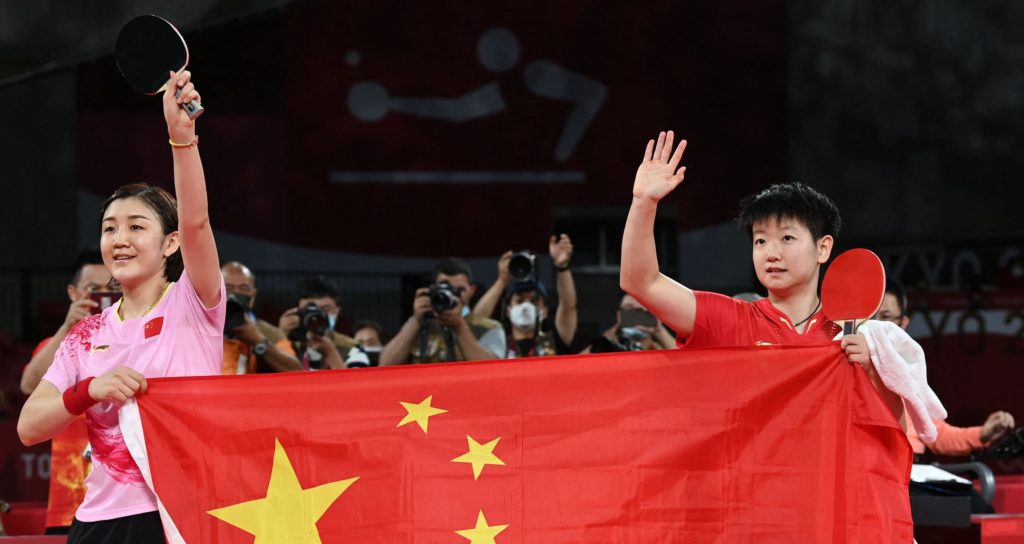The Joy of the Olympics: Table Tennis
It’s that time of the four-year cycle again. Except, thanks to COVID, it has been five years since the last Olympics. Not that you’d know it from all the signage in Japan, which sternly insists these are the Tokyo 2020 Olympics. Still, it’s time to slump in front of the TV, and become instant experts, passing harsh criticism on the failure of a gymnast to stick the landing. Another Dorito? Don’t mind if I do. But while the schedule is dominated by swimming, athletics and gymnastics, we get our greatest pleasure on the fringes. We enjoy watching the sports you never really see the rest of the time.
Table tennis would be one of these. I think part of the appeal is that it’s one of the few Olympic sports in which I have actually participated. Ok, what I played was likely better called “ping pong,” but the basic principle was the same as in these Olympics. Paddle, ball, net. This gives it a connection I don’t have, say, to gymnastics, where my high bar routine would involve 30 seconds of dangling. I could, at least theoretically, play against an Olympic champion in table tennis. Might not win many points – the edge of the table would be my best hope – but the concept is sound.
That said, this makes the gulf between my level and those of the top-level competitors all the more remarkable. “Getting the ball back across the net” was about the extent of my strategy. But here, it’s more like a combination of chess and fencing. Spin, pace and intended location factor into each shot, with the top players thinking several moves ahead. “If I hit it there, they’ll probably return it here, and then I can…”, except the thought process has to be completed, and converted into action, in a fraction of a second.

Our appreciation of proceedings here was vastly enhanced by the commentary from Adam Bobrow. Having someone who combines knowledge with genuine enthusiasm, and can convey both, really makes a huge difference to the appreciation of the casual viewer. Even the troupe of volunteers who came in to mop up rogue moisture on the table, became a feted feature, Bobrow dubbing them the “Sweat Squad”. But it was his knowledge of the players and the game which really impressed. He offered up a stream of anecdotes, but never got in the way of the action. Never an easy balance, yet Bobrow consistently nailed it.
The one thing we learned here, above all else, is the dominance of China. In the current women’s rankings six of the top seven are Chinese. So, we inevitably found ourselves rooting for Team Not China, though it didn’t help. In both the men and women’s singles, the two Chinese entrants faced off in the final. Their skill was exceeded only marginally by the ugliness of their haircuts. No, really. Turning over from the immaculately coiffeured gymnasts was a bit of a culture shock. It appears that one of the benefits of capitalism, is access to sharp scissors.
But when they were in motion, and the rallies got into it full flow, it was hard to believe you weren’t watching some CGI-created sequence from The Matrix. Shots that could not conceivably be returned, were not just returned, but with added mustard. It’s the kind of thing which filled me with a burning desire to pick up a paddl… sorry, “racket” is the preferred term, I believe, and start swinging. But if I just have a few more Doritos, I’m sure this will pass.
